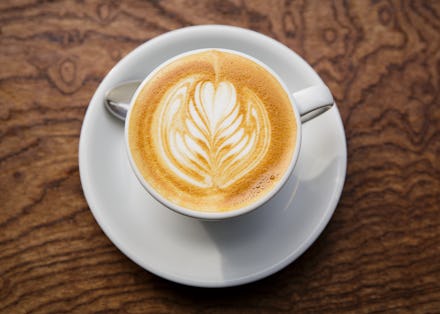Coffee is getting more expensive now because of drought in Brazil

When National Coffee Day rolls around on Thursday, September 29, you may want to take advantage of the opportunity to stock up on free cups.
That's because coffee prices are soaring and there's no sign of the trend letting up, Bloomberg reported Sunday.
The higher costs mostly have to do with the weather.
It's not raining enough in Brazil — the world's largest coffee exporter, producing 25% of the global supply — which has upped the price of arabica beans. Those costs have been passed down to consumers, who must now pay more for their morning caffeine fix, according to the report.
The Brazilian droughts follow El Nino from earlier this year, which caused another buzz-killing drought in Asia, Bloomberg noted.
Prices for arabica beans, favored by Starbucks, have climbed for five consecutive months, and are up more than 19% for the year.
Luckily, there is a lag of at least six months for high prices on coffee beans to begin affecting consumers, explained Jack Scoville, Senior Market Analyst for Price Futures Group.
"Hopefully people like Starbucks, Folgiers, Kraft were able to get their pricing in line before this rally really started," he said, referring to the five-month streak. "It's a pretty competitive businesses."
If companies aren't ready, your $3.00 cup of coffee may soon cost closer to $3.60 — not exactly an impoverishing sum, but significant over time depending on how much coffee you drink.
Scoville noted that consumers are already paying a lot more, on a historical basis, for edibles like corn, beef, and oil. "Why would coffee be an exception?" he said.
While arabica beans tend to work their way into costlier brews, even cheaper cups of joe are likely to be affected by the higher prices. Not only is the supply of beans down, but demand is up: The world is consuming more and more coffee each year.
Global coffee drinkers have been consuming about 2% more brew each year on average since 2011, according to the latest stats from the International Coffee Organization.
One small piece of solace?
Blind taste testing shows most Americans actually prefer cheaper, deli-inspired brews to the high-end fancy stuff — suggesting Starbucks-goers might be able to trim their coffee budget without much pain.